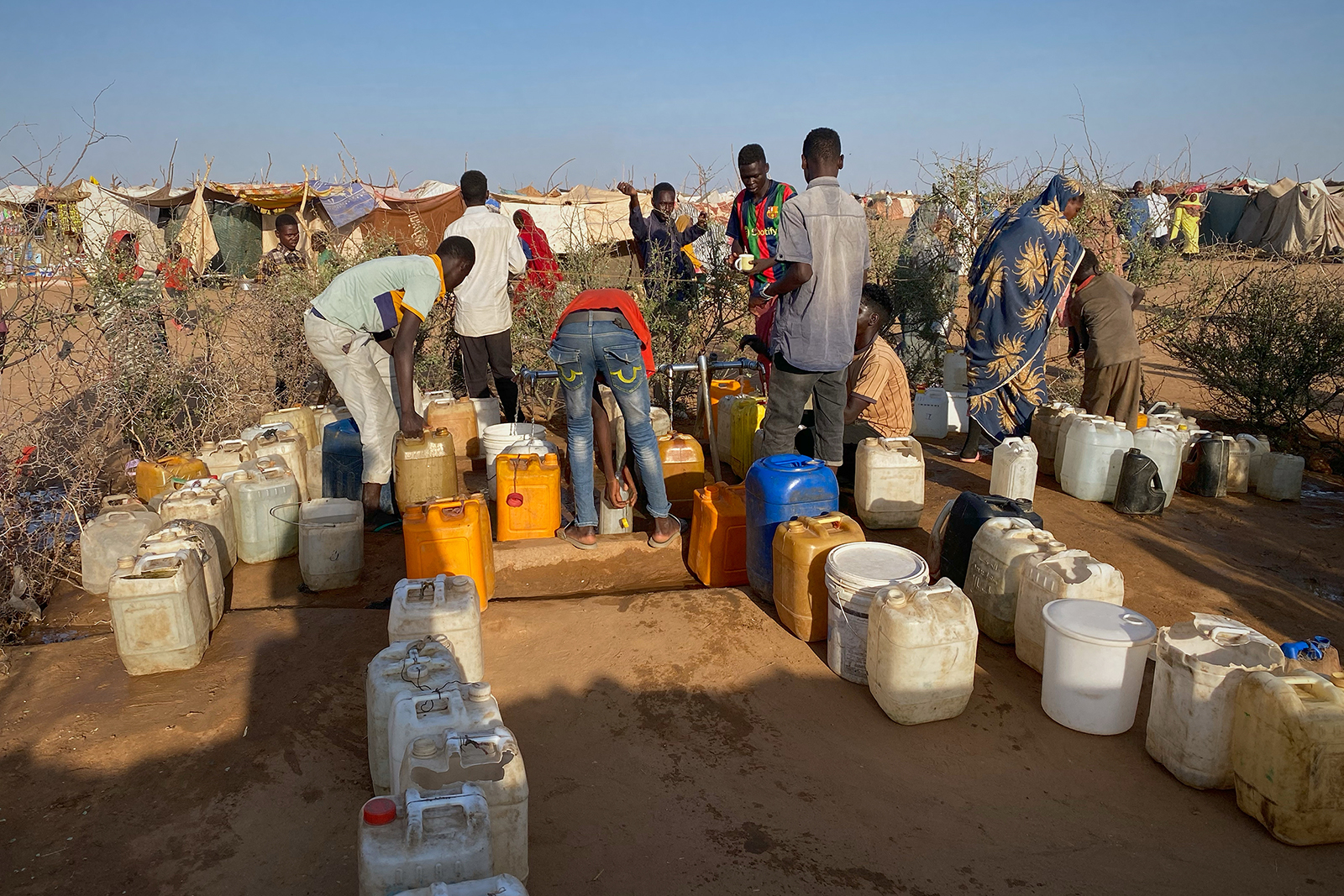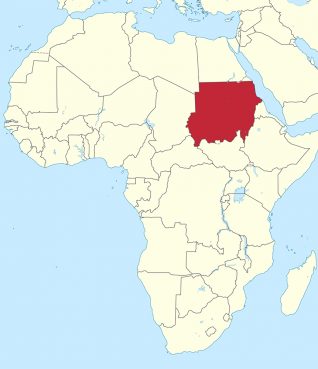
(RNS) — I have long admired my colleague, columnist Rob Eshman, for his moral clarity, his journalistic courage and his instinct for hitting the ethical pressure points we often refuse to touch. His recent op-ed in The Forward on the violence in Sudan displays that gift with painful precision.
He reminds us of something that should stop every morally conscious person cold: In one week, armed factions butchered more people in Sudan — especially in Darfur — than have been killed in Gaza in the past two years, according to Nathaniel Raymond, executive director at the Yale School of Public Health Humanitarian Research Lab. Eshman wrote: “Humanitarian groups say the ongoing slaughter is likely to rival that of Rwanda genocide, and of the genocide that took place in the same Darfur region 30 years ago. That atrocity, led by a predecessor to the RSF [Rapid Support Forces, a paramilitary group], claimed 200,000 lives.”
Eshman pushes further, explaining how weapons flow into Sudan through the United Arab Emirates, which maintains close ties to the United States:
The UAE has $29 billion in active defense contracts with the U.S. … And while UAE officials have denied that they are arming the Arab militia, known as the Rapid Support Forces, responsible for the genocide, diplomats, humanitarian groups and journalists have confirmed the link. Three of the same organizations that pro-Palestinian activists regularly cite in their brief against Israel — the United Nations, Human Rights Watch and Amnesty International — have established the UAE’s complicity.
You would think this would ignite a tidal wave of activism, but it hasn’t. No marches. No campus encampments. No movie stars with tearful declarations at awards ceremonies.
Why do we greet this atrocity with a shrug? Why do some victims rouse our conscience while others sink into unmarked graves with little lament?
The truth is as unpleasant as it is inescapable. It is because in Sudan, Israel is not responsible for the killing.
Progressives tell a story with a fixed script, and they create a moral blind spot. Within that script, Israel — and by extension Jews — play the role of ultimate villain, the symbolic oppressor.
How did this start? Dig deep into the anti-Jewish mythology of the West. But now, it is Israel that serves as the modern stand-in for the archetypal Jew of classical antisemitism: uniquely powerful, uniquely manipulative, uniquely malevolent. Israel becomes the screen onto which people project ancient fantasies of Jewish wickedness.
This is not about whataboutism, nor comparative horrors, nor about criticizing Israel’s actions or policies. It is about a stark realization that some activists have locked Israel into a moral category of one — a unique generator of global injustice. Those activists, secular as they might be, are reenacting the oldest theological demonology in Western history. This is true even if those activists are Jewish. It is remarkably easy to unconsciously absorb the most ancient and persistent hatred that Western civilization has to offer — anyone can do it.
But in their imagined fight for justice, activists limit the victims of injustice to just one: the Palestinians. And in the process of being the good guys, those activists are also ingesting a whopping side order of a 2,000-year-old theological distortion. It is not even Christian; it is Manichean and dualist, in which the Palestinians are Luke Skywalker and Israel is Darth Vader.

Sudan, red, in northeast Africa. (Map courtesy of Wikimedia/Creative Commons)
Sudan’s agony barely registers on the moral scale, likely because it does not fit into the script that shapes the moral vision of so many activists. Sudan’s horrors are grievous, yet in the narrative economy of the moment, they carry no symbolic currency.
Another possibility is it is not that the world expects so much less from the Jews, but perhaps — just perhaps — it is because many expect Jews to be especially righteous, peace-seeking and conciliatory. This theory reflects the assumption that they should have internalized their history of suffering and would bend over backwards to never see that scenario repeated anywhere, especially at their own hands.
Eshman has asked the right question. It deserves a full-throated answer. We must speak about Sudan — loudly, persistently, relentlessly — because silence in the face of mass slaughter signals complicity.
Moreover, we must name, confront, educate and dismantle the ancient prejudices that seep into modern movements.
When humanitarian disasters occur, the Jewish state is quite often among the first to be there. In the aftermath of the earthquake in Haiti in 2010, I was sitting on an airplane next to a man in a uniform who told me he had just returned from helping in Haiti. We made idle small talk about his experiences, and then he noticed I had a Jewish-themed magazine at my side.
He said, “I see from what you are reading that you are probably Jewish.” Uh-oh, I thought to myself. This could get uncomfortable.
But I had no reason to fear. He said, “I just need to say, I worked closely with the Israelis on site there in Haiti. Your people were so helpful.”
That is precisely the way I like to see my people showing up and saying hineini, here I am. Here we are.
That moment of pride warms the Jewish heart, but it does nothing to help the people of Sudan. Their land continues to burn and their people continue to die. It calls for a religious response that comes from the depths of the soul of the world.
